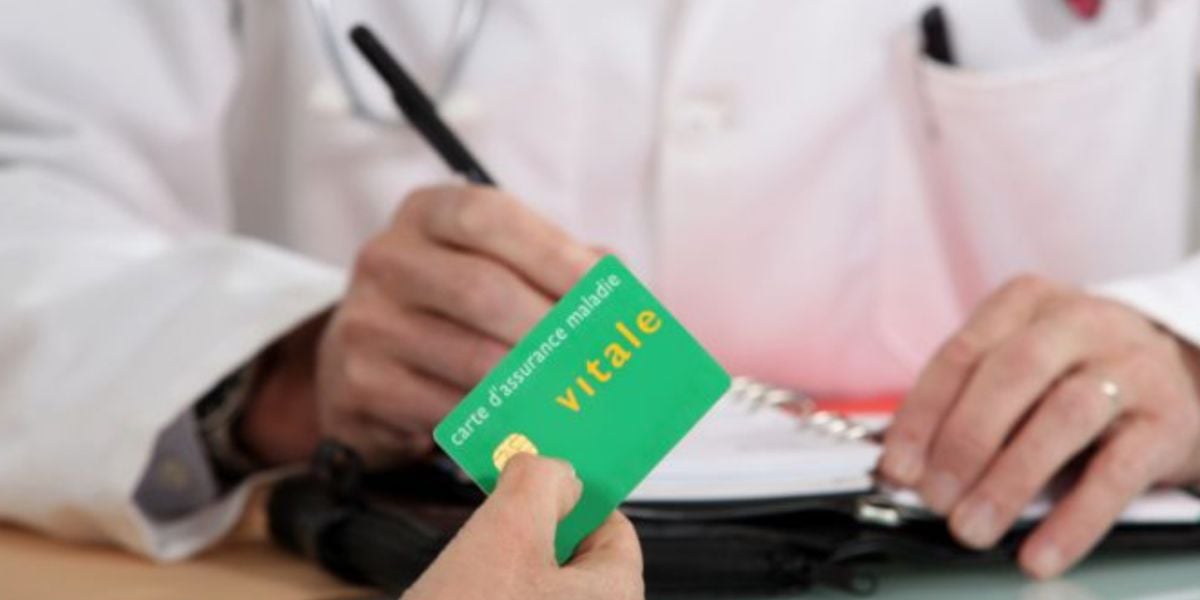
France's healthcare system is admired by many countries worldwide. It offers high-quality service in the public sector, innovative medical treatments, affordable costs, and universal access to healthcare, making it a nation of equality. Regardless of financial status, whether wealthy or unemployed, everyone can access top-notch healthcare services. However, the system does face challenges, and public healthcare deficits were a significant issue during the recent presidential election cycle.
Financing healthcare in France
The French social security system is funded through mandatory contributions from employees and employers, government subsidies, and other sources. Employee contributions typically amount to 0.40%, while employers contribute 13% or 7%, depending on the specific category. This system provides essential coverage for sickness, maternity, disability, death, occupational accidents and diseases, retirement, and family benefits. It applies universally to all residents of France, regardless of their employment status.
Medical consultations and treatments are typically reimbursed up to 70% by the social security system, leaving the remaining 30% to be paid by the patient. To offset these costs, many individuals opt for supplementary health insurance plans (mutuelle complémentaire) that provide enhanced reimbursements. For serious, chronic, or long-term illnesses, coverage extends to 100%.
Since January 2016, employers must provide employees with a group health insurance plan (mutuelle).
Conditions of access to French Social Security
Anyone aged 16 or over, legally residing in France, must have a health insurance card (Carte Vitale) displaying their social security number. This card must be presented when visiting a doctor, hospital, dentist, or health specialist for rapid, paperless reimbursement. If you cannot present your carte vitale, you will be provided with a "feuille de soins", which you will need to send to the health insurance company to be reimbursed.
Formalities for joining the French Social Security system
Citizens of the European Union and the European Economic Area who come to work in France must join the French Social Security system. If this is your case, you need to follow the steps below:
- request an E104 form from your current organization (certification concerning the aggregation of periods of insurance, employment, or residence – sickness, maternity, paternity);
- complete the form and send it to the office of the French health insurance fund (Caisse d'Assurance Maladie) nearest to your new place of residence in France.
Family members, referred to as "right holders", are also covered under the healthcare system, regardless of whether they reside in France. Suppose these family members live in your country of origin. In that case, you must obtain document S1 (certificate of registration of family members of employed or self-employed workers) from the health insurance fund in your home country.
You must then submit this form to the health insurance office in France.
Non-European nationals coming to work in France must also enroll in the French Social Security system. To qualify, they need to have legal residency in the country and contribute to the health insurance fund. In practice, employers are responsible for registering their foreign employees with the Caisse Primaire d'Assurance Maladie (CPAM) by submitting a declaration of employment within 8 days of hiring or starting their job.
Expatriates can also personally register with the CPAM by contacting the office nearest to their place of residence. This option is available to employees (excluding agricultural workers) and the unemployed.
Agricultural workers should contact the Caisse de la Mutualité Sociale Agricole (MSA).
While these procedures might appear complex initially, once you're registered and have your Carte Vitale, the reimbursement process becomes very straightforward. Despite any administrative challenges, the quality of healthcare you'll receive in France will more than compensate for it.
Healthcare for students in France
If you've decided to study in France, you'll be eligible for healthcare. Registration is compulsory and free of charge, enabling all students to benefit from healthcare and be reimbursed for their health expenses. Registration can be carried out in addition to your private health insurance or mutuelle, whether or not you are an EU or EEA citizen.
To register, go to the Ameli (Assurance Maladie) website, which is reserved for foreign students. You will be asked to identify yourself, upload the necessary supporting documents, and create a personal space to track your procedures and reimbursements.
Short-stay healthcare in France
In the case of a short stay in France (any stay of less than 3 months), you will not be denied access to healthcare. However, it is important to know what steps to take. Coming from a member state of the EU, Iceland, Liechtenstein, Norway, or Switzerland, you will have the possibility to be reimbursed for necessary medical treatment received in French territory. Your European Health Insurance Card will enable you to do this. Before you leave for France, you'll need to apply to the health authorities in your country.
To use your European Health Insurance Card correctly, you'll need to make sure that you consult a doctor with one of the three following statuses:
- conventionnel secteur 1 status: any practitioner who adheres fully to the convention and respects the conventional tariffs;
- sector 2 status: any practitioner is free to set his or her fees. Please note that any excess fees will not be reimbursed;
- sector 2 with option de pratique tarifaire maîtrisée (Optam): doctors who adhere to this option moderate their fees. Reimbursement will be on the same basis as for the first status.
If you're from another country, confirming with the health authorities that you're covered for any health issues during your stay in France is essential. Having private health insurance to cover potential medical expenses is also highly recommended. Additionally, note that certain visas for France, such as tourist visas, require this type of insurance as mandatory.
Making an appointment with a doctor in France
To make an appointment with your GP or any other healthcare professional, a simple phone call is needed.
Another way to get an appointment is to search for a doctor or specialist according to specific criteria, such as language if you don't speak French. You can also consult the Doctolib website, France's most widely used online service in this field. Everything can be done online and quickly, and you'll be able to find available specialists as quickly as possible.
Platforms like Doctolib, Maiia, or Qare offer the option of consulting a doctor via videoconference. This is particularly useful when a physical examination isn't required. Generally, scheduling an appointment for a video consultation is more straightforward.
Good to know:
Introduced in 2004, the "parcours de soin" system ensures coordinated medical care for patients. Essentially, it requires you to designate a primary care physician (médecin traitant). This doctor is your leading healthcare provider, overseeing your general medical needs and coordinating any necessary referrals to specialists.
To register with a general practitioner (GP), you can contact a specialist in your local area of residence who will enroll you on the Assurance Maladie portal. However, be mindful of potential delays: France currently needs more doctors, particularly general practitioners. As a result, many patients struggle to secure a primary care physician due to limited availability.
What to do in the event of a medical emergency in France?
In a medical emergency in France, the simplest thing to do is to go to the emergency department of the hospital in your town, district, or ‘arrondissement', depending on where you live, if you can get there, or if someone can take you. If you are unable to move about, it will be necessary to call the fire department or the SAMU service, which will take you to the hospital themselves if necessary.
Please note :
The European emergency number is 112. There are other French telephone numbers for different services, including the following:
- medical emergency: 15;
- fire department: 18;
- police rescue: 17;
- SMS emergencies for the deaf and hearing-impaired: 114.
Hospitalization in France
If you are hospitalized in France, you will need to complete some formalities and present certain documents for admission.
If you are admitted for an emergency, the formalities will be expedited. However, you or a family member will need to promptly present the required documents to the hospital.
If you are hospitalized following a consultation or appointment, you will need to present your identity card or residence permit, your Carte Vitale, and the accompanying paper certificate. Depending on your status and specific requirements, you may also need to provide additional documents such as proof of address (e.g., electricity bill or rent receipt), documents related to your supplementary health insurance or mutuelle card, complementary health insurance (formerly known as CMU-C), certificate of state medical aid, or the maternity follow-up sheet in the case of childbirth. Additionally, you will be required to provide the contact details of your doctor, who is registered with the French social security system.
If you do not have a Carte Vitale, you will need to present your European Health Insurance Card (EHIC) or forms E111 or E112 if you are a member of the European Union. If you are not from a member country, you will be required to show proof of reimbursement from your social security organization or private insurance company.
There are four types of hospitalization in France:
- full-time hospitalization or full hospitalization;
- part-time hospitalization or treatment sessions;
- day hospital or outpatient surgery;
- home hospitalization (HAD).
Upon discharge from the hospital, you may still incur certain expenses, such as co-payments. This is part of the healthcare costs you need to pay after reimbursement by the Assurance Maladie (typically 20% of hospitalization costs), along with a fixed daily rate. Also, charges for personal comfort extras (like a private room, telephone, and television) and any supplementary medical fees may apply. However, it's important to note that your supplementary or private health insurance might cover these expenses, resulting in full or partial reimbursement, depending on your coverage.
Pharmacies in France
To obtain the medication your doctor prescribes, you'll need to go to any pharmacy with your carte vitale (or "feuille de soins") and the prescription supplied. The price of the drugs will be written on the care sheet that the pharmacist will give you back with the prescription unless you have a carte vitale. You will have to pay the pharmacist directly.
Sometimes, the medication you request may not be available. In such cases, you can opt to visit another pharmacy or place an order for the medication. The pharmacist might also suggest a generic version of the drug, which contains the same active ingredient but is marketed under a different name.
Useful links:
Service-Public – Health insurance
We do our best to provide accurate and up to date information. However, if you have noticed any inaccuracies in this article, please let us know in the comments section below.











